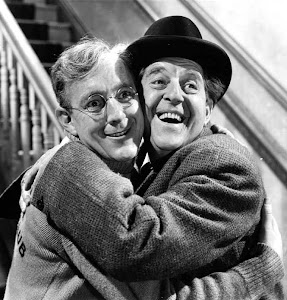Today, March 26th, marks the birthday of one of my true musical heroes, Pierre Boulez, still active at the age of 83 (hat tip to the redoubtable Pliable for the reminder). Boulez is easily one of the most polarizing figures in 20th century (and beyond) classical music: blamed by some for everything from the death of classical music as an art form to the reason that musicians working in the classical field don't make the cover of national newsweeklies anymore to being the Anti-Christ, beloved by others (i.e. me) for his fierce musical intellect, challenging-but-often-sensuous music, radical musical polemics and being a conductor who can untangle the knottiest of contemporary scores and have you thinking "Well, of course that's how it should be done!". His conducting of his chosen core repertory --Berg, Debussy, Mahler, Ravel, Schönberg, Stravinsky, Webern and Varese, say— is well nigh definitive in some cases and always probing and interesting.
Two of my greatest experiences in a concert hall involved the conducting of Pierre Boulez. The first was a routine subscription program with the Los Angeles Philharmonic that ended with a performance of Debussy's glorious La Mer that had the hairs on the back of my neck at full attention. The other was Maestro Boulez conducting a concert of his own pieces, the four orchestrated Notations (there's since been a fifth added to the piece) ending the concert in such a manner that I was in a daze for days (NOTE: sound starts upon clicking link).
Now, while I'm an unabashed fanboy, I'm not a unconditional one. As much as I adore Le marteau sans maître, Le visage nuptial, Rituel: In Memoriam Bruno Maderna, Sur Incises and what I believe is his masterpiece, Repons, I find most of the other music either too rigidly serialist or it features instruments I'm not a fan of (see: clarinet, for example). As a conductor, his readings of the standard 19th century repertoire can be a bit cold and overly-manicured for my tastes and the less said about his conducting on the Bayreuth Parsifal recording, the better.
I just wish Mr. Boulez had composed more original music instead of constantly revisiting and revising existing pieces; there was long talk of an opera but, alas. I also wish he would have spent the time he used to make make multiple recordings of early 20th century pieces to conduct more outside his normal fach.
Finally, I'm proud that I can count Pierre Boulez amongst the long list of gay men who have contributed so much to world culture.


No comments:
Post a Comment